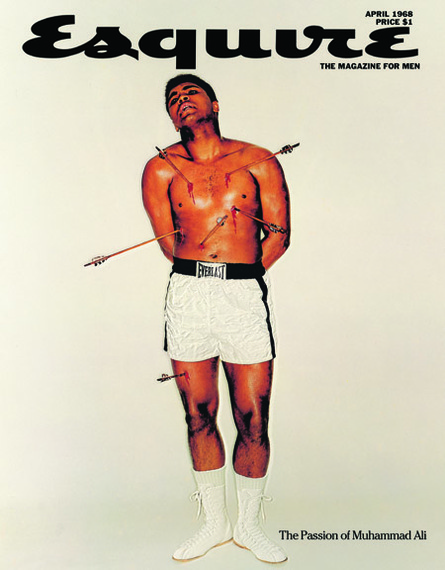Muhammad Ali's revival in the 70s and ongoing political visibility ensured that his celebrity continued to grow, as he became arguably the best-known American worldwide. His influence remained unmatched for decades, both domestically and internationally.
You may access the other parts of this piece, as well as my other articles here.
Ali's lasting influence can be seen as few as three years after the conclusion of his legal battles. In Zaire in 1974, Ali took on the then-unbeaten George Foreman for the heavyweight title. Foreman was undoubtedly the stronger of the two opponents and seemed unbeatable, but Ali triumphed, a victory that he would view as the greatest of his boxing career. Ali, from the moment he got off the plane, was surrounded by mobs of adoring Zairian fans. According to Malick Bowens, a Zairian artist and actor, it was Ali's draft refusal, the unparalleled stand of bravery that he took against his own government, that made Ali so beloved by the African and Zairian people. In addition, many incorrectly believed that defender Foreman was white. For the people of Zaire, Foreman represented white America, and even though he held the belt, Ali was always Zaire's and Africa's true champion.
Ali, as do all great athletes, eventually began to fade. At the end of his career, he lost consecutive fights to Larry Holmes and Trevor Berbick, which would force him to hang up the gloves with a 56-5 record. While Ali today is remembered for his own athletic achievements, he had a much larger effect on black athletes as a whole. Ali's subversion of the expected behavior of the black entertainer in turn changed how all black athletes were able to conduct themselves. John Carlos, who famously gave the Black Power Salute with fellow sprinter Tommie Smith during an Olympic medal ceremony in Mexico City in 1968, attributed his willingness to take a stand to Muhammad Ali. From Michael Jordan to Reggie Jackson, many black athletes have recognized the significance Ali had on both their professional and personal lives. Baseball Hall of Famer and Yankees legend Reggie Jackson observed about Ali: "Ali helped raise black people in this country out of a mental slavery. The entire experience of being black changed for millions of people because of Ali."
Ali, by virtue of his unrelenting idealism, radical provocation, and willingness to stand up against his opposition made him a truly revolutionary figure who transcended his sport. When he won heavyweight champion and became "Muhammad Ali," he became known around the world, but when Ali stood up for his beliefs and refused to fight in Vietnam, he shook up the world. In America, he brought pride to millions of black families, who only several years prior were ashamed of their race. Future revolutionaries, such as Nelson Mandela, were inspired by Ali and his athletic prowess and outspoken courage. He remains one of the most inspiring figures in American and world history. Ali's life was one of fighting back, and for that he gained both worldwide hatred and admiration.
Over the 40-plus years since the Clay v. United States ruling was handed down, public opinion of Ali has been overwhelmingly positive. In fact, information that paints him in a negative light is fairly difficult to come by. Because Ali's controversy was wrapped up in racial tension, it seems as though anything that is written critically about him must be crafted very carefully. And many of the unfavorable public opinions labelling Ali as a draft dodger or black lunatic have largely been covered up. For instance, archives of papers such as the Chicago Tribune, New York Times, or Boston Globe are all easily accessible, but archives of papers such as the Louisville Courier Journal or Atlanta Constitution before 1985 are far more difficult to unearth. In the same way that slandering Martin Luther King Jr. in today's world would cause tumult, a negative Ali piece is seen as insensitive and politically incorrect. Ultimately, Ali's stand earned him a large positive role in the American narrative almost equivalent to Dr. King. In 1996, Ali lit the Olympic torch in Atlanta, as the symbol of all that great about America. This was in the same city where Governor Maddox, 25 years earlier, deemed Ali a traitor to his country.
You may access the other parts of this piece, as well as my other articles here.

